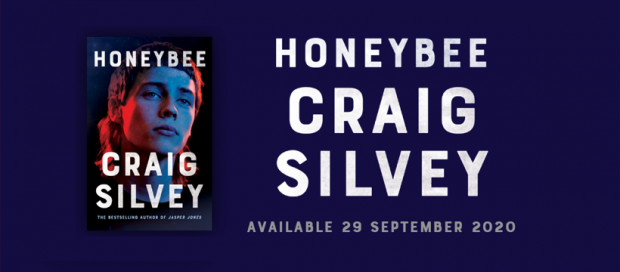
Honeybee
by Craig Silvey
Allen & Unwin
Honeybee is the latest offering from Perth local Craig Silvey, the long-awaited follow-up to the 2009 bestseller Jasper Jones. Inspired by true events, it tells the story of Sam Watson, an Australian teenager who is struggling to understand their gender identity and find their place in modern society.
The exposition is gripping, beginning in media res, with Sam perched on the edge of a bridge, preparing to jump. Their unlikely angel is Vic, a man with his own demons who suppresses them long enough to catch Sam and haul them back across the railing.
Silvey’s language is clear and simple, eschewing the deterring, verbose, and allegory-drenched prose that is so prevalent amongst contemporary Australian fiction. Consequently, Silvey’s straightforward style allows the narrative to flow and results in an easy, quick read where one is ardent to discover Sam’s fate.
Despite this, cracks begin to show as the novel progresses. Honeybee’s blurb promises a “world of petty thefts, extortion plots, botched bank robberies, daring dog rescues and one spectacular drag show.” This blurb is misleading, as these events occur once and then have minimal impact on the plot or on Sam. Additionally, Sam’s relationship with Vic seems to drift in and out of the novel when it is convenient, and isn’t as organic or developed as it should be. Despite his being a product of an older and more traditional time, Vic is quick to accept Sam’s blurred gender identity and alternate lifestyle choices with minimal protest, an act that belies his character.
Similarly, to many of the other characters in the novel, Sam is seen as captivating and immediately deserving of all of their attention and energy, despite having done little to deserve this. In particular, Peter, the nurse and drag queen begins spending days at Sam’s house and looking out for them, despite barely knowing Sam. Other characters go out of their way to fix Sam’s life and involve them, seeming enamoured with Sam upon first meeting.
Regrettably, the hollowest relationship is that between Sam and their mother. Despite her lack of understanding and her both perpetuating and condoning Sam being abused, Sam spends the entire novel trying to please and save her, with their relationship development culminating in an abrupt fashion that does not ring true to life and begged to be developed further.
Honeybee lacks a discernible overarching plot or goal for Sam. While this is not atypical of real life, it leaves the reader feeling as though Sam lacks agency, subject to the desires and actions of others as they are just swept from event to event. Even when the novel reaches its resolution, the reader is left cheated, bitter, and resentful, despite the new level of empowerment and understanding Sam reaches.
Sam has little involvement in their own salvation as it is engineered by other characters and Sam seems happy to just go along for the ride. Additionally, Sam’s new life and identity reek of a deus ex machina: abruptly introduced and not provided time to organically develop after such a long time spent suffering.
Silvey is not shy to construct a world teeming with tribulations that range from poverty and homelessness, parental abuse and neglect, to confusion about one’s gender. Sam is subjected to a barrage of hardships which leaves them battered and desperate to end their life. Whilst Sam is not the most compelling or engaging protagonist, one immediately feels empathy for their situation and the plight of others who are battling similar issues.
Predictably, Silvey has been criticised for his choice to delve into these issues and has been accused of reducing gender issues to archetypes. However, it would be a greater injustice to not tell Sam’s story and therefore not help promote awareness and encourage others to incorporate gender identity issues into their own writing. Thus, Silvey deserves praise for humanising these issues and bringing them forward in society’s collective conscience.
Ultimately, like Jasper Jones, Honeybee is a bold attempt to represent a variety of social issues. Unlike Jasper Jones, Honeybee was not worth the time spent reading it.
MATT SABERHAGEN
